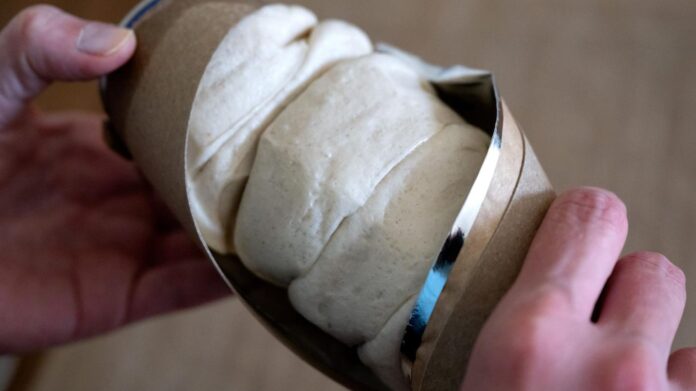
When you go shopping for beer and filled chocolates with eggnog, it’s clear that they contain alcohol. But rolls, ready-made pizza dough, marzipan or small loaves for hot dogs sometimes contain small amounts of alcohol – which surprises many customers who want to be careful. It can be found in the mandatory information on the ingredients, which is only printed in small print on the packaging. Consumer advice centers are therefore calling for more conspicuous information.
“Consumer complaints show that many people overlook the alcohol information in the ingredients list,” said Stephanie Wetzel, coordinator of the Food Clarity project at the Federal Association of Consumer Organizations. “This is a problem for children and people who consciously avoid alcohol.” Foods containing alcohol should therefore be clearly labeled. “Alcohol should also be mandatory on unpackaged food and restaurant meals that do not have an ingredients list,” Wetzel demanded.
Small amounts of alcohol in various products
“Hidden” alcohol is particularly common in sweets, desserts and ready meals, the consumer advocate told the German Press Agency. Salad dressings, delicatessen salads and jams also occasionally contain alcohol. In the ingredient lists, some of the names are also “ethanol” or “ethyl alcohol,” according to the portal Lebensmittelklarheit.
The Association of German Bakeries explained that alcohol is sometimes produced in the dough itself through the fermentation process. The starch in the grain provides sugar, which yeast converts into carbon dioxide and alcohol. The carbon dioxide then ensures that the bread has volume and does not come out of the oven as a baked lump of dough. The alcohol is responsible, among other things, for the aroma and a good crust. The measurable amount is minimal, and the products are intended for baking. The labeling in the ingredients list is sufficient, the association stressed.
No warning signs yet
The federal government currently has no plans for new packaging instructions. The Ministry of Food explained that the labelling law regulated at EU level does not currently provide for mandatory requirements such as warnings. The right to initiate changes lies with the EU Commission. The ministry welcomes an EU-wide harmonised approach to labelling to prevent abusive alcohol consumption. It will contribute constructively to possible consultations.
The Federal Institute for Risk Assessment explained that it can be assumed that ethanol from natural fermentation processes is not critical in terms of intoxicating or toxic effects – even when consumed in large quantities and by “sensitive subgroups” of the population. In the case of bread rolls, it can be assumed that heating during baking leads to a significant reduction in any ethanol content that may be present.
The Ministry of Food pointed out that small amounts of natural alcohol can also be found in fruit juices and kefir, although this is usually not noticeable in terms of taste. According to the federal Max Rubner Research Institute, there are no known negative effects of the small amounts.
© dpa-infocom, dpa:240901-930-219274/1
This is a message directly from the dpa news channel.
